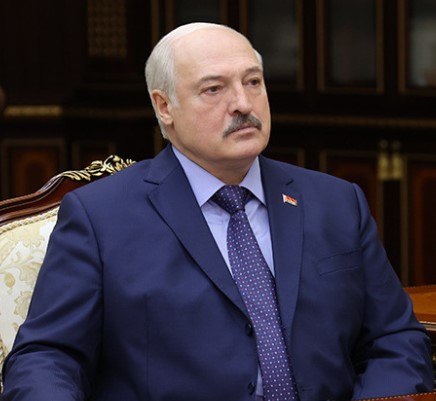FT: Mass deportation of migrants threatens US agriculture

Photo is illustrative in nature. From open sources.
Photo: Unsplash, February 11, MINSK . The US government's decision to mass deport undocumented migrants could trigger a crisis in US agriculture , according to a report in the Financial Times (FT), as reported by TASS .
The publication notes that the American business community is concerned that US President Donald Trump's immigration reform could have a devastating impact on the country's agricultural sector, which "cannot function without migrant workers." The dairy industry would be hit hardest in this case, as US immigration policy only provides a special visa for seasonal workers harvesting fruits and vegetables, and does not provide such an option for long-term dairy farm workers.
According to Tyler Wentzlaff, a spokesman for the Wisconsin Farm Federation, many undocumented migrants "work on farms for years," making a significant contribution to the economy. "We support deporting criminals, but we need a reliable workforce in Wisconsin," he said. Wisconsin
farmer
John Rosenow added that without migrants, there would be no MILK, cheese, butter, or ice cream. He also doubts that limiting the flow of undocumented immigrants will lead to an increase in the number of "native Americans" employed. According to a Michigan State University economist, approximately 40% of the 2.4 million workers in US agriculture are ineligible to work in the country. "They play an important role that many US-born workers are either unable or unwilling to fulfill," he said, warning that mass deportations could trigger higher food prices.
The Financial Times also cites statistics from the National Council of Agricultural Employers, which show that in 2020, only 337 native-born Americans applied for agricultural jobs . At the time, there were more than 97,600 job openings in the sector.
Trump has previously repeatedly called for a tightening of US immigration policy. After taking office on January 20, Trump signed an executive order declaring a state of emergency on the Mexican border. The US Department of Homeland Security expanded law enforcement powers, allowing them to expedite the deportation of undocumented migrants without an immigration COURT order. Trump also instructed the Pentagon and the Department of Homeland Security to expand the temporary detention center for migrants at the US base at Guantanamo Bay in Cuba.
The publication notes that the American business community is concerned that US President Donald Trump's immigration reform could have a devastating impact on the country's agricultural sector, which "cannot function without migrant workers." The dairy industry would be hit hardest in this case, as US immigration policy only provides a special visa for seasonal workers harvesting fruits and vegetables, and does not provide such an option for long-term dairy farm workers.
According to Tyler Wentzlaff, a spokesman for the Wisconsin Farm Federation, many undocumented migrants "work on farms for years," making a significant contribution to the economy. "We support deporting criminals, but we need a reliable workforce in Wisconsin," he said. Wisconsin
farmer
John Rosenow added that without migrants, there would be no MILK, cheese, butter, or ice cream. He also doubts that limiting the flow of undocumented immigrants will lead to an increase in the number of "native Americans" employed. According to a Michigan State University economist, approximately 40% of the 2.4 million workers in US agriculture are ineligible to work in the country. "They play an important role that many US-born workers are either unable or unwilling to fulfill," he said, warning that mass deportations could trigger higher food prices.
The Financial Times also cites statistics from the National Council of Agricultural Employers, which show that in 2020, only 337 native-born Americans applied for agricultural jobs . At the time, there were more than 97,600 job openings in the sector.
Trump has previously repeatedly called for a tightening of US immigration policy. After taking office on January 20, Trump signed an executive order declaring a state of emergency on the Mexican border. The US Department of Homeland Security expanded law enforcement powers, allowing them to expedite the deportation of undocumented migrants without an immigration COURT order. Trump also instructed the Pentagon and the Department of Homeland Security to expand the temporary detention center for migrants at the US base at Guantanamo Bay in Cuba.
Read together with it:
- В Минтруда напомнили об основных мерах безопасности во время проведения республиканского субботникаНовости темы 25 октября, Минск. Как обеспечить безопасность проведения республиканского субботника, рассказали БЕЛТА в Министерстве труда и социальной защиты. Сегодня республиканский субботник объединит сотни тысяч белорусов. В ведомстве напомнили об основных мерах безопасности во время его проведения. Если во время субботника сотрудники находятся на своем рабочем месте, обеспечение здоровых и без...
- In Minsk, an unlicensed BMW driver lost control and crashed into a pole.Photo by the State Traffic Inspectorate of the Main Directorate of Internal Affairs of the MINSK City Executive Committee, October 25, Minsk . In Minsk tonight, the driver of a BMW lost control and crashed into a pole and a nearby car, the State Traffic Inspectorate of the Main Directorate of Internal Affairs of the Minsk City Executive Committee told BelTA. According to preliminary information, t...
- Парагвай: Экспорт субпродуктов является растущей отраслью и уже достиг 95,4 млн долларов СШАЭкспорт говяжьих субпродуктов в этом году значительно вырос. К концу августа выручка составила 95,4 млн долларов США по сравнению с 54,6 млн долларов США на тот же конец прошлого года. По данным SENACSA, в конце августа этого года было экспортировано 51 миллион килограммов мяса по сравнению с 33,7 миллиона килограммов на конец того же месяца прошлого года. Экспорт субпродуктов увеличился на 51,3%....
- Министерство сельского хозяйства США представило план по снижению цен на говядинуПоголовье скота в стране находится на самом низком уровне за последние 75 лет, в то время как спрос на говядину вырос на 9% за последнее десятилетие. Поскольку увеличение поголовья скота в стране требует времени, Министерство сельского хозяйства США (USDA) уже сейчас инвестирует средства, чтобы сделать эти рынки менее волатильными для скотоводов в долгосрочной перспективе и более доступными для по...
- В Кремле пообещали ответ на санкции сообразно интересам РоссииДмитрий Песков В Кремле начали анализировать введенные санкции для разработки ответных мер, заявил пресс-секретарь президента России Дмитрий Песков, передает корреспондент РБК. «В настоящий момент анализируются те санкции, которые определены. Будем делать то, что наилучшим образом соответствует нашим интересам», — сообщил Песков, отвечая на вопрос об ответных мерах России. 19-й пакет санкции Еврос...
- США ввели санкции против президента КолумбииПрезидент Колумбии, его жена и старший сын, а также глава колумбийского МВД попали под санкции США из-за трафика наркотиков из Колумбии в Штаты. Бессент обвинил Петро в отказе пресечь деятельность наркокартелей Густаво Петро Минфин США ввел санкции против президента Колумбии Густаво Петро, сообщается на сайте ведомства. «Президент Петро позволил наркокартелям процветать и отказался пресечь их деят...
- Чего ожидать от «одной из самых рискованных» поездок ТрампаДональд Трамп начал турне по Азии, в ходе которого встретится с лидерами ключевых стран, включая Си Цзиньпина. Почему эта поездка может оказаться сложнее, чем недавние визиты в Европу и на Ближний Восток — в статье РБК Дональд Трамп Какие встречи запланированы в ходе турне Президент США Дональд Трамп вылетел из Вашингтона поздним вечером в пятницу, 24 октября, и утром в субботу его борт приземлитс...
- Первичная задача - дойти до каждого сельхозпредприятия. Депутат о развитии АПК Витебской области24 октября, Минск. Обеспечить эффективную работу сельхозпредприятий возможно путем внедрения лучших практик. Таким мнением с корреспондентом БЕЛТА поделился заместитель председателя Постоянной комиссии по аграрной политике Палаты представителей Андрей Балыш по итогам совещания Президента Александра Лукашенко в Витебске. "Острые, но абсолютно справедливые слова главы государства должны стать поводо...





























































